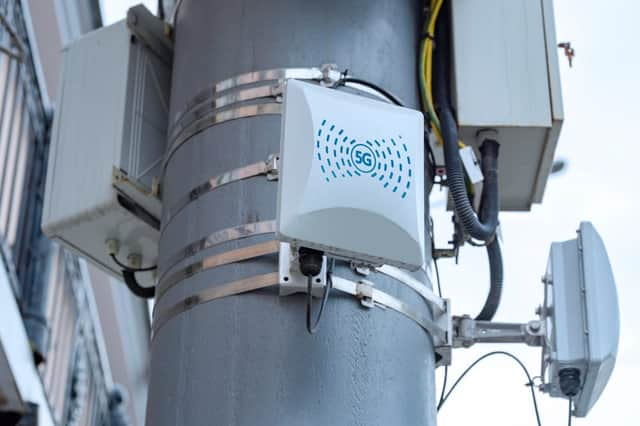5G health myths debunked - as phone networks join forces for to fight misinformation


A campaign to educate the public and combat misinformation about 5G has been launched as a number of conspiracy theories involving the technology persist.
Known as 5GCheckTheFacts, it aims to ease concerns about 5G, ahead of it being rolled out more widely in the UK.
15% of people think 5G is bad for their health
Advertisement
Advertisement
The campaign was partly prompted by research which found that around 15 per cent of people surveyed thought 5G could be bad for their health
Researchers also found that, while 81 per cent of people condemned conspiracy theories about 5G, a number of people (three per cent) said they were strongly against the technology.
Around half the people surveyed said they didn’t know what the benefits of 5G were.
Myths about 5G debunked
The rollout of 5G technology has been dogged with misinformation from the beginning.
Advertisement
Advertisement
Early claims linking the technology with mass bird deaths, or saying that 5G radiation could cause cancer, have been roundly debunked a number of times.
All radio waves ‘radiate’. However, unlike X-rays and gamma radiation, which can harm human cells, 5G and most other forms of radio wave are “non-ionizing”, meaning they cannot interact with human cells.
Conspiracy theories relating to the technology gathered momentum at the beginning of the Covid-19 pandemic.
Conspiracists claimed there was a link between the launch of 5G and the pandemic, pointing to the supposed fact that both 5G and Covid-19 started to appear at the same time, and both originated in China.
Advertisement
Advertisement
This isn’t accurate, however, because while China did deploy a large 5G network in late 2019, the technology began to be rolled out in 2018, and was first deployed in South Korea and parts of the US.
Above all, there is no link whatsoever between the kind of radio waves emitted by 5G towers and viruses such as Covid, which spread through droplets in the air.
You can find further information on the misinformation surrounding 5G on fact checking charity Full Fact’s website.
#5GCheckTheFacts
The 5GCheckTheFacts campaign was launched by Mobile UK, the mobile industry trade body, which represents the four major UK phone networks - EE, O2, Three and Vodafone,
Advertisement
Advertisement
Mobile UK director, Hamish McLeod, said: “While it is clear that only a small minority of people are against 5G, these results highlight a desire for more information and clarification, both with regard to the health and safety of 5G, but also on how the technology can and will truly transform society.
“Our #5GCheckTheFacts campaign is designed to provide this information and answers to people’s most common questions.”
He added: “We truly believe that 5G is a benefit offering significant positive changes to us all as well as providing connectivity that will make our lives easier and, in some cases, save lives.”
‘A risk to human life’
Since the rollout of 5G technology began, dozens of masts and pieces of infrastructure have been targeted by vandals. A 5G mast was targeted in Chelmsford for the third time in a year earlier this month, leaving thousands of people without phone signal when many are working from home.
Advertisement
Advertisement
Speaking to The Sun last year, an EE spokesperson said that arson attacks inspired by online conspiracy theories create a “risk to human life”.
They said: “Mindless attacks on key workers and deliberately removing mobile signal is a reckless, harmful and dangerous thing to do.
"And aside from the obvious risk to our colleagues could have serious consequences, from preventing a call reaching the ambulance service, to stopping families being able to talk to each other.
"These senseless crimes are creating unnecessary risk to human life, both to those that live in the areas being targeted and to the emergency services working to contain the situation."